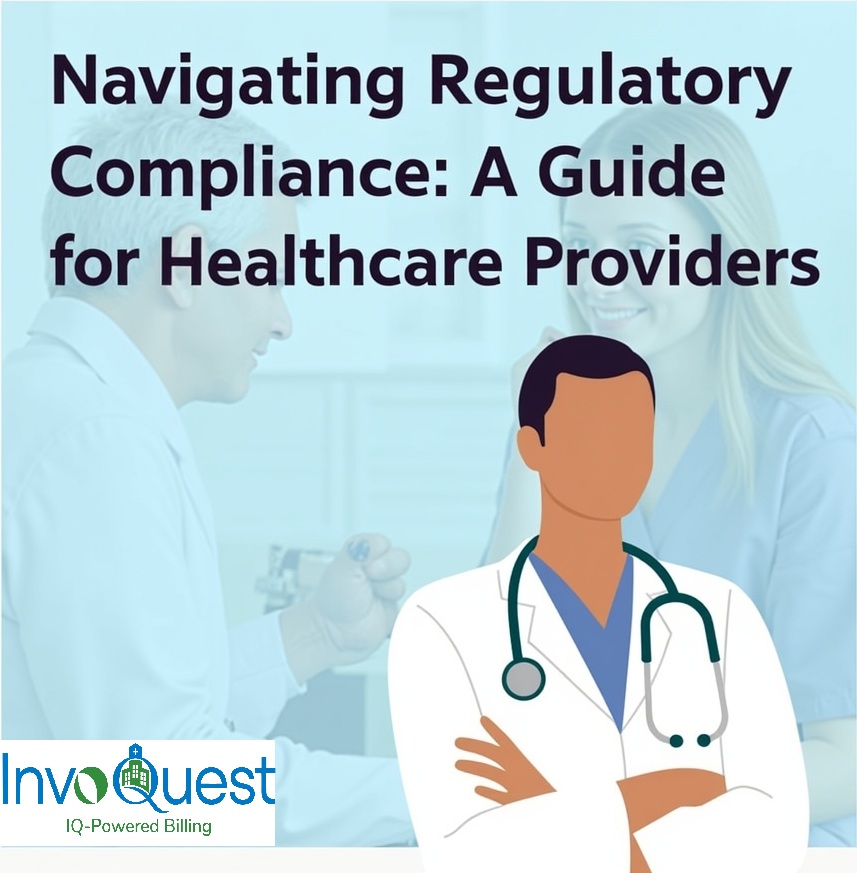Regulatory compliance is a cornerstone of the healthcare industry, ensuring that providers operate within legal and ethical guidelines while delivering quality patient care. With constantly evolving regulations, staying compliant can be a challenge. Healthcare providers must navigate a complex landscape of laws, policies, and guidelines to avoid financial penalties and maintain trust with patients and insurers.
Understanding Healthcare Regulations
Compliance in healthcare involves adhering to various federal and state regulations designed to protect patient data, ensure accurate billing, and prevent fraud. Some key regulations that providers must follow include:
- HIPAA (Health Insurance Portability and Accountability Act): Protects patient privacy and mandates secure handling of health information.
- HITECH Act (Health Information Technology for Economic and Clinical Health): Strengthens HIPAA protections and promotes the adoption of electronic health records (EHRs).
- False Claims Act: Prevents fraudulent claims submission to government healthcare programs.
- Stark Law and Anti-Kickback Statute: Regulate physician referrals and financial relationships to prevent conflicts of interest.
Failure to comply with these regulations can result in hefty fines, legal action, and reputational damage for healthcare organizations.
The Role of Compliance in Medical Billing
Medical billing is a highly regulated process that requires strict adherence to coding guidelines and billing practices. Compliance in medical billing helps prevent:
- Billing Fraud: Submitting inaccurate or false claims can lead to serious legal consequences.
- Coding Errors: Incorrect use of medical codes can delay reimbursements and trigger audits.
- Overbilling and Underbilling: Both scenarios can impact revenue cycles and lead to financial instability.
By implementing strong compliance practices, healthcare providers can ensure that claims are accurately processed, reducing the risk of denials and improving financial performance.
Best Practices for Staying Compliant
To maintain compliance, healthcare providers should adopt the following best practices:
- Regular Staff Training: Keeping employees informed about regulatory updates helps prevent unintentional violations.
- Automated Billing Systems: Leveraging technology can minimize errors and ensure adherence to coding standards.
- Routine Audits: Conducting internal compliance audits helps identify and rectify potential issues before they escalate.
- Patient Data Security: Implementing strong cybersecurity measures ensures compliance with HIPAA and protects patient information.
- Transparent Billing Practices: Clear communication with patients regarding medical bills reduces disputes and enhances trust.
The Importance of Compliance in Revenue Cycle Management
Revenue cycle management (RCM) is a critical component of healthcare operations. A strong compliance framework within RCM ensures that claims are processed efficiently while meeting all regulatory requirements. This leads to:
- Faster reimbursements
- Reduced claim denials
- Enhanced financial stability
- Lower risk of audits and penalties
How InvoQuest Helps Healthcare Providers Stay Compliant
At InvoQuest, we understand the complexities of healthcare regulations and the impact they have on medical billing and revenue cycle management. Our team of experts is dedicated to helping providers maintain compliance while optimizing financial performance.
We offer:
- Advanced billing solutions to minimize errors
- Compliance training and support for healthcare staff
- Secure data management to protect patient information
- Regular audits to ensure adherence to regulatory standards
Staying ahead of compliance challenges is essential for every healthcare provider. Let InvoQuest help you navigate these regulations seamlessly.
For more information, visit www.invoquest.us or call us at (888) 392-8990. For personalized assistance, reach out through our contact page today!
